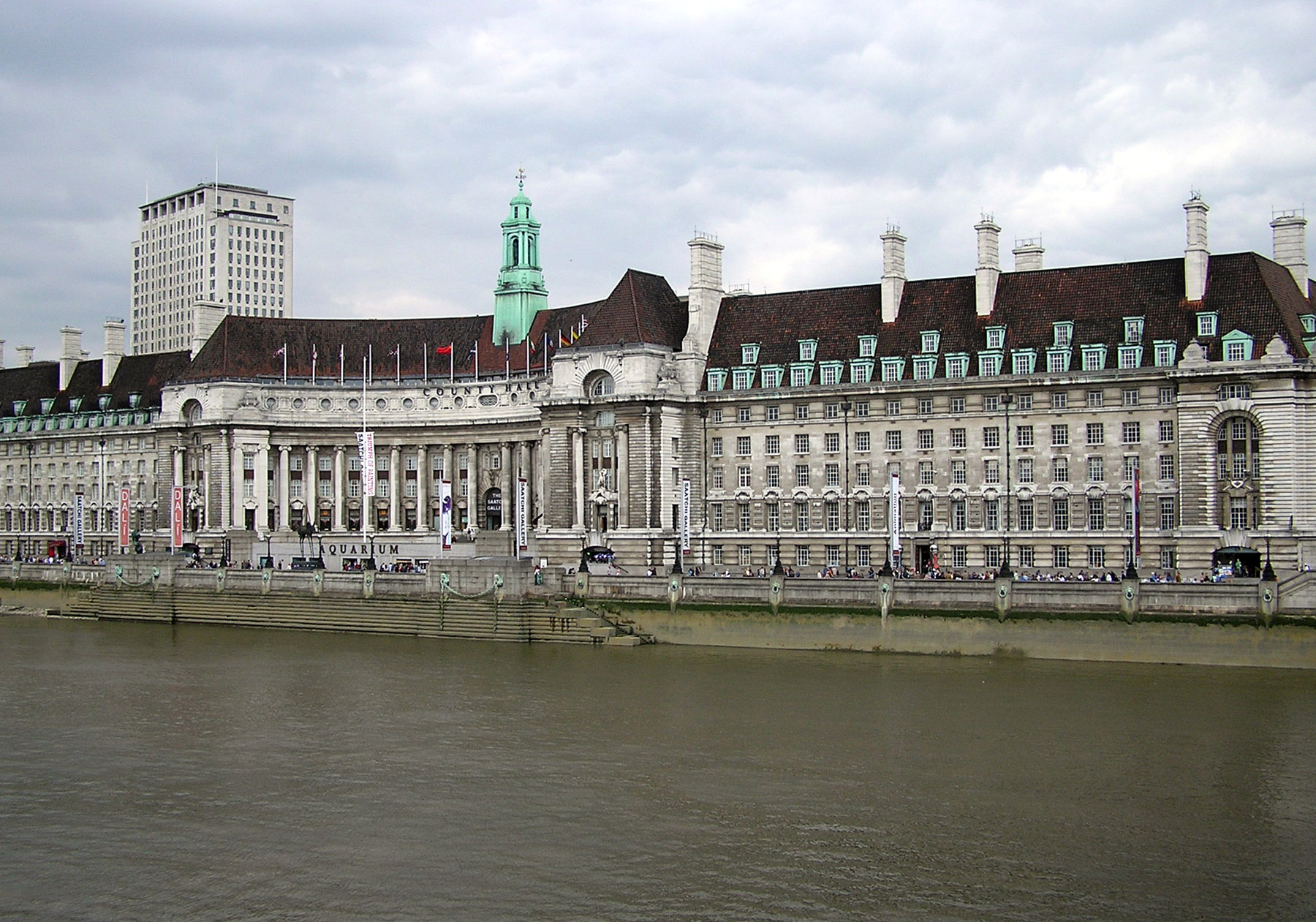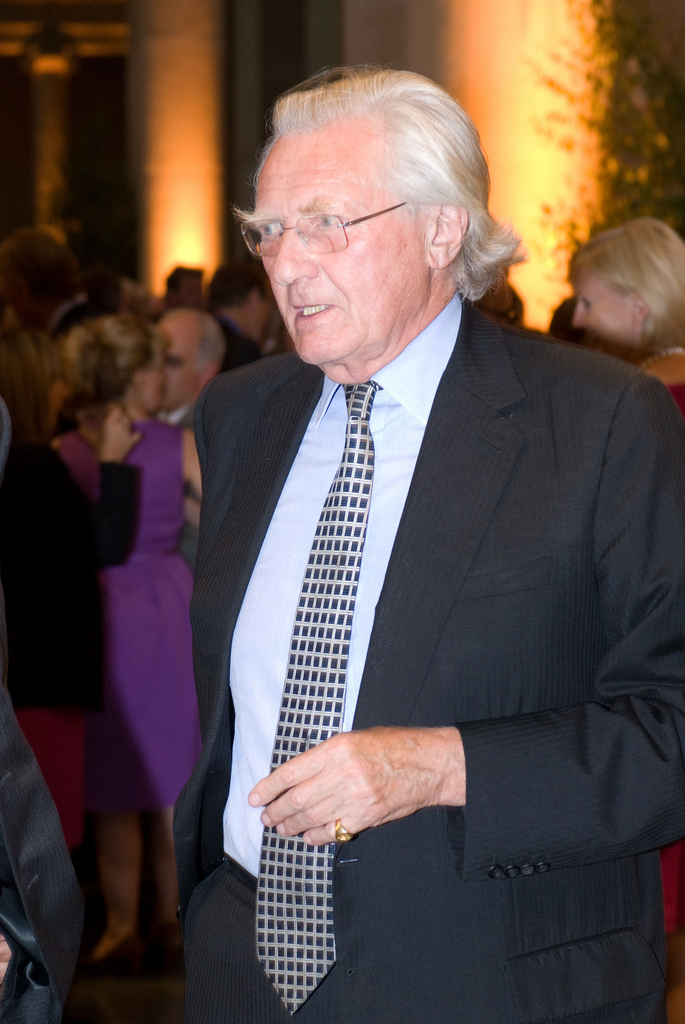|
Fares Fair
Fares Fair was a public policy advocated by the Labour Party administration of the Greater London Council (GLC), then led by Ken Livingstone. The policy of low public transport fares was implemented in 1981, but was later ruled to be illegal in the courts and rescinded the following year. The Fares Fair policy had widespread support among Labour London members, who viewed it as a moderate and mainstream policy; no one had ever considered the legality of the move. In the 1981 GLC election, the political moderate Andrew McIntosh led Labour to victory, but the following day he was voted out by the Labour members of the GLC and replaced by Livingstone. Proceeding with the Fares Fair policy which they had promised in their electoral manifesto, they reduced London Transport fares by 32 percent in October 1981. The legality of the Fares Fair policy was subsequently challenged by Dennis Barkway, Conservative leader of the Bromley London Borough Council. Taking the GLC to court, ... [...More Info...] [...Related Items...] OR: [Wikipedia] [Google] [Baidu] |
County
A county is a geographic region of a country used for administrative or other purposes Chambers Dictionary, L. Brookes (ed.), 2005, Chambers Harrap Publishers Ltd, Edinburgh in certain modern nations. The term is derived from the Old French denoting a jurisdiction under the sovereignty of a count (earl) or a viscount.The Oxford Dictionary of English Etymology, C. W. Onions (Ed.), 1966, Oxford University Press Literal equivalents in other languages, derived from the equivalent of "count", are now seldom used officially, including , , , , , , , and ''zhupa'' in Slavic languages; terms equivalent to commune/community are now often instead used. When the Normans conquered England, they brought the term with them. The Saxons had already established the districts that became the historic counties of England, calling them shires;Vision of Britai– Type details for ancient county. Retrieved 31 March 2012 many county names derive from the name of the county town (county seat) w ... [...More Info...] [...Related Items...] OR: [Wikipedia] [Google] [Baidu] |
Inflation
In economics, inflation is an increase in the general price level of goods and services in an economy. When the general price level rises, each unit of currency buys fewer goods and services; consequently, inflation corresponds to a reduction in the purchasing power of money. The opposite of inflation is deflation, a sustained decrease in the general price level of goods and services. The common measure of inflation is the inflation rate, the annualized percentage change in a general price index. As prices do not all increase at the same rate, the consumer price index (CPI) is often used for this purpose. The employment cost index is also used for wages in the United States. Most economists agree that high levels of inflation as well as hyperinflation—which have severely disruptive effects on the real economy—are caused by persistent excessive growth in the money supply. Views on low to moderate rates of inflation are more varied. Low or moderate inflation may be ... [...More Info...] [...Related Items...] OR: [Wikipedia] [Google] [Baidu] |
Public Transport In London
London has an extensive and developed transport network which includes both private and public services. Journeys made by public transport systems account for 37% of London's journeys while private services accounted for 36% of journeys, walking 24% and cycling 2%. London's public transport network serves as the central hub for the United Kingdom in rail, air and road transport. Public transport services are dominated by the executive agency for transport in London: Transport for London (TfL). TfL controls the majority of public transport, including the Underground, Buses, Tramlink, the Docklands Light Railway, London River Services and the London Overground. Other rail services are either franchised to train operating companies by the Department for Transport (DfT) or, like Eurostar and Heathrow Express, operated on an open-access basis. TfL also controls most major roads in London, but not minor roads. In addition, there are several independent airports serving London, incl ... [...More Info...] [...Related Items...] OR: [Wikipedia] [Google] [Baidu] |
Rates (tax)
Rates are a type of property tax system in the United Kingdom, and in places with systems deriving from the British one, the proceeds of which are used to fund local government. Some other countries have taxes with a more or less comparable role, like France's . Rates by country Australia Local government authorities levy annual taxes, which are called council rates or shire rates. The basis on which these charges can be calculated varies from state to state, but is usually based in some way on the value of property. Even within states, individual local government authorities can often choose the specific basis of rates – for example, it may be on the rental value of houses (as in Western Australia) or on the unimproved land value (as in New South Wales). These rateable valuations are usually determined by a statutory authority, and are subject to periodic revision. Canada Rates are referred to as property taxes in Canada. These taxes are collected primarily by municipal gove ... [...More Info...] [...Related Items...] OR: [Wikipedia] [Google] [Baidu] |
Greater London
Greater may refer to: *Greatness Greatness is a concept of a state of superiority affecting a person or object in a particular place or area. Greatness can also be attributed to individuals who possess a natural ability to be better than all others. An example of an expressi ..., the state of being great *Greater than, in inequality * ''Greater'' (film), a 2016 American film * Greater (flamingo), the oldest flamingo on record * "Greater" (song), by MercyMe, 2014 * Greater Bank, an Australian bank * Greater Media, an American media company See also * * {{Disambiguation ... [...More Info...] [...Related Items...] OR: [Wikipedia] [Google] [Baidu] |
British Rail
British Railways (BR), which from 1965 traded as British Rail, was a state-owned company that operated most of the overground rail transport in Great Britain from 1948 to 1997. It was formed from the nationalisation of the Big Four (British railway companies), Big Four British railway companies, and was privatisation of British Rail, privatised in stages between 1994 and 1997. Originally a trading brand of the Railway Executive of the British Transport Commission, it became an independent statutory corporation in January 1963, when it was formally renamed the British Railways Board. The period of nationalisation saw sweeping changes in the railway. A process of dieselisation and Railway electrification in Great Britain, electrification took place, and by 1968 steam locomotives had been entirely replaced by diesel and electric traction, except for the Vale of Rheidol Railway (a narrow-gauge railway, narrow-gauge tourist line). Passenger train, Passengers replaced freight train, ... [...More Info...] [...Related Items...] OR: [Wikipedia] [Google] [Baidu] |
London Underground
The London Underground (also known simply as the Underground or by its nickname the Tube) is a rapid transit system serving Greater London and some parts of the adjacent counties of Buckinghamshire, Essex and Hertfordshire in England. The Underground has its origins in the Metropolitan Railway, the world's first underground passenger railway. Opened on 10 January 1863, it is now part of the Circle, District, Hammersmith & City and Metropolitan lines. The first line to operate underground electric traction trains, the City & South London Railway in 1890, is now part of the Northern line. The network has expanded to 11 lines, and in 2020/21 was used for 296 million passenger journeys, making it one of the world's busiest metro systems. The 11 lines collectively handle up to 5 million passenger journeys a day and serve 272 stations. The system's first tunnels were built just below the ground, using the cut-and-cover method; later, smaller, roughly circular tu ... [...More Info...] [...Related Items...] OR: [Wikipedia] [Google] [Baidu] |
London Buses
London Buses is the subsidiary of Transport for London (TfL) that manages most bus services in London, England. It was formed following the Greater London Authority Act 1999 that transferred control of London Regional Transport (LRT) bus services to TfL, controlled by the Mayor of London. Overview Transport for London's key areas of direct responsibility through London Buses are the following: * planning new bus routes, and revising existing ones * specifying service levels * monitoring service quality * management of bus stations and bus stops * assistance in 'on ground' set up of diversions, bus driver assistance in situations over and above job requirements, for example Road Accidents * providing information for passengers in the form of timetables and maps at bus stops and online, and an online route planning service * producing leaflet maps, available from Travel Information Centres, libraries etc., and as online downloads. * operating NMCC, London Buses' 24‑ho ... [...More Info...] [...Related Items...] OR: [Wikipedia] [Google] [Baidu] |
Michael Heseltine
Michael Ray Dibdin Heseltine, Baron Heseltine, (; born 21 March 1933) is a British politician and businessman. Having begun his career as a property developer, he became one of the founders of the publishing house Haymarket. Heseltine served as a Conservative Member of Parliament from 1966 to 2001, and was a prominent figure in the governments of Margaret Thatcher and John Major, and served as Deputy Prime Minister and First Secretary of State under Major. Heseltine entered the Cabinet in 1979 as Secretary of State for the Environment, where he promoted the " Right to Buy" campaign that allowed two million families to purchase their council houses. He was considered an adept media performer and a charismatic minister, although he was frequently at odds with Thatcher on economic issues. He was one of the most visible "wets", whose "One Nation" views were epitomised by his support for the regeneration of Liverpool in the early 1980s when it was facing economic collapse; th ... [...More Info...] [...Related Items...] OR: [Wikipedia] [Google] [Baidu] |
National Health Service
The National Health Service (NHS) is the umbrella term for the publicly funded healthcare systems of the United Kingdom (UK). Since 1948, they have been funded out of general taxation. There are three systems which are referred to using the "NHS" name ( NHS England, NHS Scotland and NHS Wales). Health and Social Care in Northern Ireland was created separately and is often locally referred to as "the NHS". The four systems were established in 1948 as part of major social reforms following the Second World War. The founding principles were that services should be comprehensive, universal and free at the point of delivery—a health service based on clinical need, not ability to pay. Each service provides a comprehensive range of health services, free at the point of use for people ordinarily resident in the United Kingdom apart from dental treatment and optical care. In England, NHS patients have to pay prescription charges; some, such as those aged over 60 and certain state ... [...More Info...] [...Related Items...] OR: [Wikipedia] [Google] [Baidu] |
Taxation
A tax is a compulsory financial charge or some other type of levy imposed on a taxpayer (an individual or legal entity) by a governmental organization in order to fund government spending and various public expenditures (regional, local, or national), and tax compliance refers to policy actions and individual behaviour aimed at ensuring that taxpayers are paying the right amount of tax at the right time and securing the correct tax allowances and tax reliefs. The first known taxation took place in Ancient Egypt around 3000–2800 BC. A failure to pay in a timely manner ( non-compliance), along with evasion of or resistance to taxation, is punishable by law. Taxes consist of direct or indirect taxes and may be paid in money or as its labor equivalent. Most countries have a tax system in place, in order to pay for public, common societal, or agreed national needs and for the functions of government. Some levy a flat percentage rate of taxation on personal annual income, bu ... [...More Info...] [...Related Items...] OR: [Wikipedia] [Google] [Baidu] |




.jpg)

_Metroline_London_New_Routemaster.jpg)


